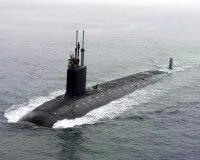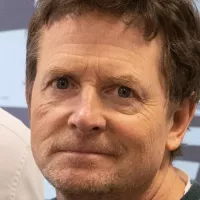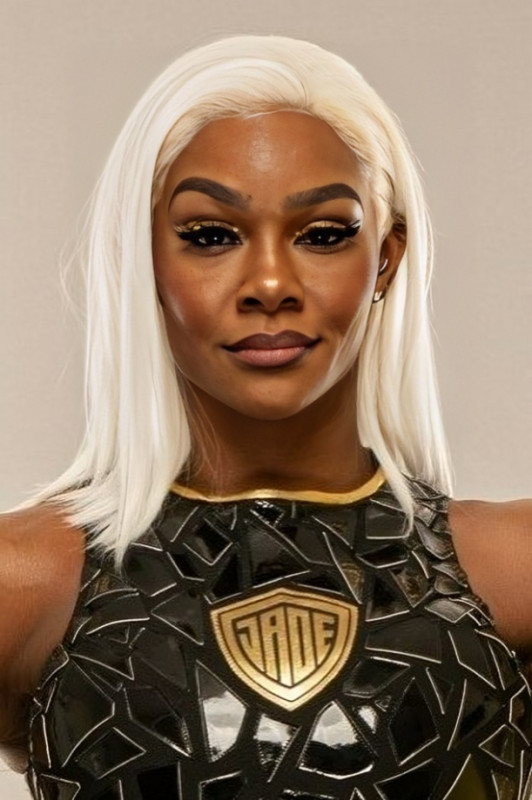The Netherlands, also known as Holland, is a country in Northwestern Europe and the largest constituent of the Kingdom of the Netherlands. It consists of twelve provinces and borders Germany to the east and Belgium to the south. The Netherlands has a North Sea coastline and shares maritime borders with the United Kingdom, Germany, and Belgium. The official language is Dutch, with West Frisian as a secondary official language in Friesland. Dutch, English, and Papiamento are official in its Caribbean territories. Its people are referred to as Dutch.
1900: Population
From 1900 to 1950, the country's population almost doubled from 5.1 to 10 million.
1901: Rising temperature
From 1901 to 2020, the average temperature in the Netherlands rose by more than 2°C.
1912: Dutch National Olympic Committee Established
A Dutch National Olympic Committee was established in 1912.
1916: Blockade by the British Royal Navy
In 1916, the import of goods through the Netherlands proved essential to German survival until the blockade by the British Royal Navy.
1917: Male suffrage became universal
Since male suffrage became universal in 1917, the Dutch political system has been dominated by three families of political parties.
1919: Women's suffrage allowed
In 1919, the Netherlands allowed women's suffrage.
1932: Completion of the Afsluitdijk
In 1932, the Afsluitdijk (Closure Dike) was completed, separating the Zuiderzee from the North Sea and creating the IJsselmeer.
May 1940: Germany invaded the Netherlands
On 10 May 1940, Germany invaded the Netherlands, leading to the Rotterdam Blitz and the Dutch army's surrender.
December 1941: Dutch government-in-exile declared war on Japan
On 8 December 1941, the Dutch government-in-exile in London declared war on Japan.
1944: First Canadian Army liberated much of the Netherlands
In 1944, the First Canadian Army liberated much of the Netherlands
August 1945: Indonesia declared its independence
In August 1945, Indonesia declared its independence.
1948: Treaty of Brussels
In 1948, the Netherlands abandoned its neutrality when it signed the Treaty of Brussels.
1950: Population growth
From 1900 to 1950, the country's population almost doubled from 5.1 to 10 million.
1952: Establishment of the European Coal and Steel Community
In 1952, the European Coal and Steel Community was established.
February 1953: North Sea flood caused dike collapses
In February 1953, the huge North Sea flood caused the collapse of several dikes in the southwest Netherlands, leading to over 1,800 deaths.
1953: Aftermath of the 1953 disaster
After the 1953 disaster, the Delta Works was constructed, which is a comprehensive set of civil works throughout the Dutch coast.
1954: Charter for the Kingdom of the Netherlands reformed the political structure
In 1954, the Charter for the Kingdom of the Netherlands reformed the political structure, leading to Surinam and Curaçao becoming constituent countries.
1956: Netherlands Participates in Eurovision
The Netherlands has participated in the Eurovision Song Contest since its first edition in 1956.
1958: Creations of the European Economic Community and European Atomic Energy Community
In 1958 creations of the European Economic Community and European Atomic Energy Community.
1958: Project started
The Delta Works project started in 1958.
1960: Rise in Muslim Population
The Muslim population in Netherlands increased from the 1960 as a result of large numbers of migrant workers.
1973: Turkish Delight Release
In 1973, Paul Verhoeven's film "Turkish Delight" ("Turks Fruit") was released.
1974: National Football Team Runner-Up in World Cup
The national football team was runner-up in the World Cup of 1974.
1977: Soldier of Orange Release
In 1977, Paul Verhoeven's film "Soldier of Orange" ("Soldaat van Oranje") was released.
1978: National Football Team Runner-Up in World Cup
The national football team was runner-up in the World Cup of 1978.
1979: Joop Zoetemelk Won Vuelta a Espana
Joop Zoetemelk won the 1979 Vuelta a Espana.
1980: Spetters Release
In 1980, Paul Verhoeven's film "Spetters" was released.
1983: The Fourth Man Release
In 1983, Paul Verhoeven's film "The Fourth Man" ("De Vierde Man") was released.
1983: Commander of chief function transferred
In 1983, the ceremonial function of commander of chief of the monarch was transferred to the government.
1985: Joop Zoetemelk Won UCI World Championship
Joop Zoetemelk won the 1985 UCI World Championship.
1987: RoboCop Release
In 1987, Paul Verhoeven directed the film "RoboCop".
1988: European Championship Win
The national football team won the European Championship of 1988.
1990: Total Recall Release
In 1990, Paul Verhoeven directed the film "Total Recall".
1990: Compared to 1990 levels
In 2021 CO2 emissions were down 14% compared to 1990 levels.
1992: Basic Instinct Release
In 1992, Paul Verhoeven directed the film "Basic Instinct".
1993: Incorporation into the European Union
In 1993, the former European Communities were incorporated into the European Union.
1995: Volleyball National Women's Team Won European Championship
The volleyball national women's team won the European Championship in 1995.
1996: Conscription suspended
In 1996 conscription was suspended, and the Dutch army was once again transformed into a professional army.
1996: Recognition of Yiddish and Romani
In 1996, Yiddish and the Romani language were recognised in the Netherlands as non-territorial languages.
1997: Completion of the Maeslantkering
In 1997 the Delta Works was largely completed with the completion of the Maeslantkering.
January 1999: Euro adoption
On January 1, 1999, as a founding member of the euro, the Netherlands replaced its former currency, the gulden (guilder), for accounting purposes.
2000: Bronze Age
Finds of rare bronze objects suggest that Drenthe was a trading centre in the Bronze Age (2000–800 BC).
2000: Population growth
From 1950 to 2000, the population further increased, to 15.9 million.
2000: Raised awareness of religion
Since 2000 there has been raised awareness of religion in Netherlands, mainly due to Islamic extremism.
2001: Same-sex marriage legalised
In 2001, the Netherlands became the first country to legalise same-sex marriage.
January 2002: Euro coins and banknotes
On January 1, 2002, euro coins and banknotes were introduced in the Netherlands.
2002: Eastern Scheldt designated a national park
In 2002, the Eastern Scheldt was designated a national park, becoming the largest national park in the Netherlands.
2002: Euro introduced as fiat money
In 2002, the euro was introduced as fiat money in the Netherlands.
2004: Murder of Theo van Gogh
In 2004, film director Theo van Gogh was murdered in Amsterdam after directing the short film "Submission".
2004: Merger of Churches
In 2004, the Protestant Church in the Netherlands (PKN) was formed as a merger of the Dutch Reformed Church, the Reformed Churches in the Netherlands and a smaller Lutheran Church.
2005: Economic slowdown
In 2005, the economy of the Netherlands experienced a slowdown.
2005: Top Three in Euro Health Consumer Index
Since 2005, the Netherlands has consistently ranked among the top three countries in each report published by the Euro Health Consumer Index (EHCI).
January 2006: Dual System Healthcare Financing
In January 2006, the Netherlands implemented a dual system for healthcare financing.
2006: Young people with non-western background
As of 2006, over half the young people in Amsterdam and Rotterdam have a non-western background.
2006: Black Book Release
In 2006, Paul Verhoeven returned to Dutch cinema with the film "Black Book" ("Zwartboek").
2006: Spirituality in the Netherlands
In 2006, a study reported that 40% of respondents considered themselves spiritual. Also, 13% of people questioned saw themselves as atheists.
2006: Economic recovery
In 2006, the Netherlands economy recovered to the fastest pace in six years.
2007: Child well-being ranking
In 2007, UNICEF ranked the Netherlands 1st in child well-being in rich countries.
2007: Betuweroute Completion
In 2007, the Betuweroute, a new fast freight railway from Rotterdam to Germany, was completed.
2007: Pace of job growth reached 10-year highs
In 2007, the pace of job growth in the Netherlands reached 10-year highs.
2007: Volleyball National Women's Team Won World Grand Prix
The volleyball national women's team won the World Grand Prix in 2007.
2008: Renewable energy share
From 2008 to 2019, the share of energy from renewable sources doubled in the Netherlands.
2009: Long-Term Treatments Insurance
In 2009, a state-controlled mandatory insurance covered 27% of all healthcare expenses related to long-term treatments and disability costs.
2009: First Place in Health Care Systems Study
In 2009, a study comparing the health care systems of the United States, Australia, Canada, Germany, and New Zealand ranked the Netherlands first.
2009: Average Height
In 2009, the Dutch were the tallest people in the world, with an average height of 1.81 metres for men and 1.67 metres for women.
2010: Foreign-born residents
According to Eurostat, in 2010 there were 1.8 million foreign-born residents in the Netherlands, corresponding to 11.1% of the total population.
2010: Dissolution of the Netherlands Antilles
In 2010, the Netherlands Antilles was dissolved, and Bonaire, Sint Eustatius, and Saba became special municipalities.
2010: National Football Team Runner-Up in World Cup
The national football team was runner-up in the World Cup of 2010.
2012: Agricultural exports
In 2012 agricultural exports of Netherlands earning €75.4 billion.
2013: Child well-being ranking
In 2013, UNICEF ranked the Netherlands 1st in child well-being in rich countries.
2013: Netherlands Ranked Bike-Friendly
In 2013, the European Cyclists' Federation ranked the Netherlands and Denmark as the most bike-friendly countries in Europe.
December 2014: More Atheists than Theists
In December 2014, a survey concluded that for the first time, atheists (25%) outnumbered theists (17%) in the Netherlands, with the remaining population being agnostic (31%) or ietsistic (27%).
2014: Agricultural exports
In 2014 agricultural exports of Netherlands earning €80.7 billion.
2014: Netherlands Ranked Most Nutritious Food
In early 2014, Oxfam ranked the Netherlands as the country with the most nutritious, plentiful, and healthy food.
2015: Survey
A 2015 survey found that Protestants outnumbered Catholics in Netherlands.
2015: Spendable income
According to Dutch Central Statistics Bureau, in 2015, 28 per cent of the Dutch population had a spendable income above 45,000 euros.
2015: Endemol Merges with Shine Group
In 2015, Endemol merged with Shine Group.
2015: Church Attendance Decline
In 2015, a vast majority (82%) of Dutch inhabitants reported never or almost never visiting a church, and 59% stated they had never been to a church. The study also indicated that 24% identified as atheist, and the rise of spirituality had come to a halt.
2016: Netherlands Tops Euro Health Consumer Index
In 2016, the Netherlands secured the top position in the annual Euro Health Consumer Index (EHCI), which compares healthcare systems in Europe, with a score of 916 out of 1,000 points.
2016: Global Enabling Trade Report
In 2016, the Netherlands was ranked 2nd in the Global Enabling Trade Report.
2016: Biocapacity deficit
In 2016, the Netherlands was running a biocapacity deficit of 4.0 global hectares per person.
2016: Royal Schiphol Group Passengers
In 2016, the Royal Schiphol Group airports handled 70 million passengers.
January 2017: Women in Submarine Service
On January 1, 2017, the submarine service in the Netherlands opened to women.
2017: Most competitive economy
In 2017, the Swiss International Institute for Management Development ranked Netherlands as the fifth most competitive economy in the world.
2017: Women's National Team Won European Championship
The Netherlands women's national football team won the European Championship of 2017.
2017: Tom Dumoulin Won Giro d'Italia
Tom Dumoulin won the 2017 Giro d'Italia.
2018: Carbon Dioxide Emissions
As of 2018, the Netherlands had one of the highest rates of carbon dioxide emissions per person in the European Union.
2018: Global Innovation Index Ranking
In 2018, the Netherlands was ranked 2nd in the Global Innovation Index.
2018: Fertility Rate
In 2018, the fertility rate in the Netherlands was 1.78 children per woman.
2019: Dutch government prefers the Netherlands instead of Holland
As of 2019, the Dutch government officially has preferred the Netherlands instead of Holland when talking about the country.
2019: Netherlands Hosts 30% of EU Recharging Stations
As of 2019, the Netherlands hosted approximately 30% of all recharging stations in the European Union.
2019: Agricultural Exports Value
In 2019, agricultural exports from the Netherlands were worth €94.5 billion.
2019: Climate Agreement
In 2019, the Netherlands Climate Agreement defines policies and measures to support the achievement of Dutch climate targets and was developed through a collaborative process involving parties from across Dutch society.
2019: Forest Landscape Integrity Index
The Netherlands had a 2019 Forest Landscape Integrity Index mean score of 0.6/10, ranking it 169th globally out of 172 countries.
2019: Women's National Team Runner-Up in World Cup
The women's national football team was runner-up in the 2019 World Cup.
2020: Rising temperature
From 1901 to 2020, the average temperature in the Netherlands rose by more than 2°C.
2020: Endemol Merges with Banijay
In 2020, Endemol merged with Banijay.
2020: Schiphol Cargo Processing
In 2020, Schiphol Airport processed 1.44 million tonnes of cargo.
2020: Non-religious population
In 2020, Statistics Netherlands found that 55% of the total population declared itself non-religious.
2020: Life Expectancy
Life expectancy in the Netherlands in 2020 is 84.3 years for newborn girls and 79.7 for boys.
2021: CO2 emissions were down 14%
In 2021 CO2 emissions were down 14% compared to 1990 levels.
2022: Rotterdam Tenth Largest Container Port
As of 2022, Rotterdam was the world's tenth-largest container port.
2022: Ethnic Composition
In 2022, the population of the Netherlands was 74.8% ethnically Dutch, 8.3% other European, 2.4% Turkish, 2.4% Moroccan, 2.0% Indonesian, 2.0% Surinamese, and 8.1% others.
2022: Residents with foreign-born parent
In 2022, there were 4.4 million residents in the Netherlands with at least one foreign-born parent.
2022: 9th most democratic country
Netherlands was ranked as the 9th most democratic country in the world by the Democracy Index (The Economist) in 2022.
2023: Municipalities
In 2023, the Netherlands has 342 municipalities (gemeenten).
2023: Best electoral democracy
Netherlands was ranked as the 17th best electoral democracy in the world by V-Dem Democracy indices in 2023.
July 2024: Dick Schoof has been prime minister
Dick Schoof has been prime minister since July 2024, succeeding the longest-serving prime minister, Mark Rutte.
2024: Global Peace Index
According to the 2024 Global Peace Index, the Netherlands is the 18th most peaceful country in the world.
June 2025: Population Estimate
As of June 2025, the Netherlands had an estimated population of 18,080,943.
November 2025: The centrist-liberal Democrats 66 of Rob Jetten was the winner of a general election
In November 2025, the centrist-liberal Democrats 66 of Rob Jetten was the winner of a general election.
2025: Global Innovation Index
In 2025, the country was ranked the 8th most innovative nation in the world in the Global Innovation Index.
2030: Goal of the Dutch government
The goal of the Dutch government is to reduce emissions in 2030 by 49%.
Mentioned in this timeline

A submarine is a watercraft capable of independent operation underwater...
New Zealand is an island country in the southwestern Pacific...
Germany officially the Federal Republic of Germany is a nation...
Suriname located in northern South America and sometimes considered part...
China officially the People's Republic of China is an East...
Japan is an East Asian island country located in the...
Trending
57 minutes ago León Seeks Third Victory Against Necaxa in Liga MX Match

57 minutes ago Michael J. Fox Inspired Harrison Ford's Parkinson's Monologue in 'Shrinking'

58 minutes ago Jade Cargill aspires to WWE Hall of Fame, compares self to Michael Jordan.

58 minutes ago Brandon Ingram's Poor Game-Tying Attempt Against Spurs; Barrett's Raptors Desire Unclear.
58 minutes ago Marriott's Crystal Cove Resort Opens in Barbados, Promising Luxury Caribbean Vacation

58 minutes ago JoJo Siwa addresses wedding invite snub as Brooke Hyland marries Brian Thalman.
Popular

Jesse Jackson is an American civil rights activist politician and...

XXXTentacion born Jahseh Dwayne Ricardo Onfroy was a controversial yet...

Hillary Diane Rodham Clinton is a prominent American politician lawyer...

Michael Joseph Jackson the King of Pop was a highly...

Kashyap Pramod Patel is an American lawyer who became the...

Barack Obama the th U S President - was the...